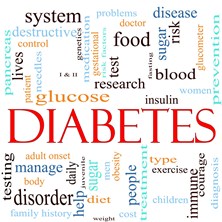-
Cardiovascular
Mayo Clinic Study Shows 5-year Survival of Diabetes and Non-Diabetes Patients Post-Kidney Transplant Now Nearly Equal
Findings indicate significant advancements in the management of diabetic kidney transplant patients
ROCHESTER, Minn. — Mayo Clinic researchers have discovered that the five-year survival of diabetic kidney transplant patients is now on par with the five-year survival of nondiabetic kidney recipients.
These new findings are published on the Kidney International website and will also be printed in a future issue of the journal.
 The study findings represent significant improvements in the management of kidney transplant patients who have diabetes and pre-transplant consequences of diabetes such as heart disease and high blood pressure. The study also suggests that improvements in patient management post-transplant have resulted in significant declines in subsequent cardiac events and a reduction in infections. Prior to 2004, the five-year mortality rate of diabetic kidney transplant patients was more than double that of nondiabetic kidney recipients.
The study findings represent significant improvements in the management of kidney transplant patients who have diabetes and pre-transplant consequences of diabetes such as heart disease and high blood pressure. The study also suggests that improvements in patient management post-transplant have resulted in significant declines in subsequent cardiac events and a reduction in infections. Prior to 2004, the five-year mortality rate of diabetic kidney transplant patients was more than double that of nondiabetic kidney recipients.
To arrive at these latest findings, a Mayo Clinic research team led by Fernando Cosio, M.D., medical director of kidney and pancreas transplantation, analyzed the experiences of 1,688 kidney recipients, including 413 with diabetes prior to transplant between 1996 and 2007.
The survival of patients with diabetes mellitus in the general population has improved in recent years. Post-transplant, patients with diabetes experienced a significant decline in major fatal/nonfatal cardiac events and deaths from infections over time. In contrast, neither cardiac events nor overall mortality declined in recipients who did not have diabetes. The decline in mortality due to diabetes did not relate to a reduced pre-transplant risk profile and was independent of post-transplant variables. The use of cardioprotective medications and glycemic control improved over time post-transplant. Furthermore, graft function and serum albumin significantly improved over time, and these parameters related to better survival.
“We were really encouraged to see this gap improve so dramatically,” says Dr. Cosio. “Diabetic patients who undergo kidney transplantation can expect outcomes equally as successful as nondiabetics, provided that they are diligent in their management of blood pressure, glucose, healthy weight, and other factors that influence their kidney function and overall well-being.”
The Mayo Clinic research team also included Mira Keddis, M.D., Nephrology; Mireille El Ters, M.D.; Emilio Rodrigo, M.D., Ph.D.; Patrick Dean, M.D., Transplantation Surgery; Mariana Wohlfahrtova, M.D.; Yogish Kudva, M.B.B.S., Endocrinology; Elizabeth Lorenz, M.D., Nephrology and Hypertension.
More than 120,000 people are waiting for organ transplant in the United States. Nearly 2,000 of those are children. Every 10 minutes another name is added to the national waiting list. An average of 18 people die each day in the United States waiting for transplants that can't take place because of the shortage of donated organs.
For more information about organ donation, visit http://www.donatelifeamerica.org.
###
About Transplantation at Mayo Clinic
Mayo Clinic has one of the nation’s largest and most experienced transplant practices, with campuses in Minnesota, Arizona and Florida. Over 200 doctors in transplant medicine and surgery perform about 1,800 transplants a year, and have a long track record of excellent outcomes. The opportunity to collaborate with multiple transplant programs allows Mayo Clinic patients access to a multidisciplinary transplant team and the opportunity for multiorgan transplantation if necessary.
About Mayo Clinic
Recognizing 150 years of serving humanity in 2014, Mayo Clinic is a nonprofit worldwide leader in medical care, research and education for people from all walks of life. For more information, visit 150years.mayoclinic.org, www.mayoclinic.org and newsnetwork.mayoclinic.org.
MEDIA CONTACT:
Ginger Plumbo, Mayo Clinic Public Affairs, 507-284-5005, Email: newsbureau@mayo.edu







